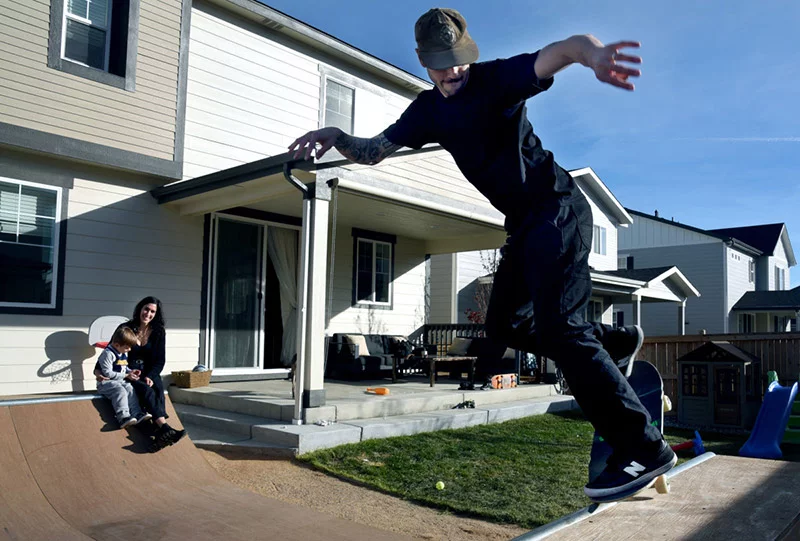
A new drug is providing hope to a handful of pancreatic cancer patients, including one young dad who was only 32 when doctors diagnosed him with stage 4 primary pancreatic adenocarcinoma in early 2024.
The drug works for about one in 100 patients diagnosed with pancreatic cancer, but for some patients with tumors fueled by a genetic quirk called an NRG1 fusion, zenocutuzumab (Bizengri) is having a profound impact.
Colin Kiesel, 34, counts himself among the patients who are responding to zenocutuzumab.
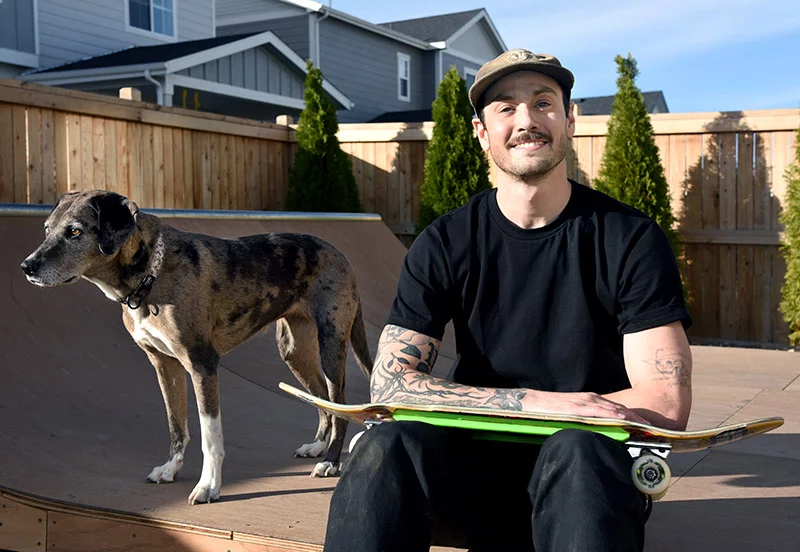
Kiesel had been dealing with a lingering respiratory crud that seemed to be sapping his energy for months — probably a bug his two-year-old son Will had brought home from daycare, he figured. Plus, a busy travel schedule to customers and conventions as the national sales manager for an apparel brand took him away from Will and wife Natasha about every week and provided little chance to recover.
A day on the slopes of Steamboat proved pivotal. The expert snowboarder who typically rode steeps, bumps and rails from first chair to last found his legs trembling after just a few turns. An overwhelming sense of weakness snuffed out the usual exhilaration the mountain typically delivered. He also felt pain in his upper abdomen when he hit bumps. A visit to the doctor led to one with an oncologist, who delivered the unfathomable diagnosis: he had advanced cancer, and it was one of the worst kinds.
The five-year survival rate for stage 4 pancreatic cancer — that is, cancer that has spread beyond surrounding lymph nodes, as Kiesel’s had — is just 3.2%.
He was in rough shape. Tumors had infiltrated his liver. The surrounding lymph nodes were cancerous and enlarged, fluid accumulated in his pelvis, and the 5-foot-10-inch Kiesel’s weight had plunged from 145 pounds to about 120.
“Just reading my son a couple of pages of a book was more than I could handle,” Kiesel said.
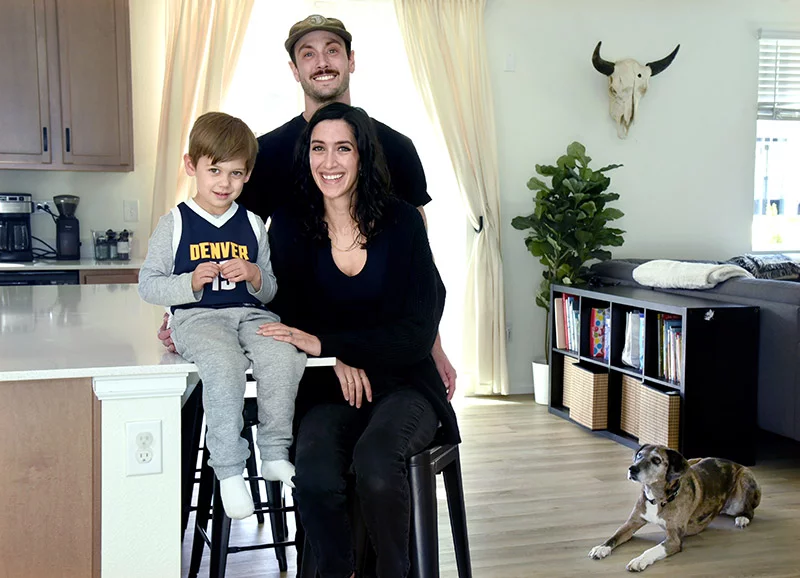
Chemotherapy is still the first-line treatment for metastatic pancreatic cancer
Dr. Christopher Lieu, a medical oncologist and professor specializing in gastrointestinal cancers with the University of Colorado School of Medicine, ordered a tumor biopsy and noted the NRG1 fusion.
NRG1 fusions are a genetic trait that drives cancer-cell proliferation. Just 0.4% to 1.6% of pancreatic cancer patients have an NRG1 fusion, Lieu says, and, until recently, knowledge of it had no practical utility for patients. But a clinical trial was testing a drug developed by Netherlands-based Merus N.V., and early returns were promising. To join the trial, though, the cancer had to have progressed despite chemotherapy.
Kiesel was doing chemotherapy, and the FOLFIRINOX regimen was shrinking his tumors, making him ineligible for the trial. He got an infusion at UCHealth Cancer Care – Anschutz Medical Campus every two weeks, followed by 48 hours on a fluorouracil pump at home. This would continue for 35 rounds, and, for more than a year, it kept the cancer in check.
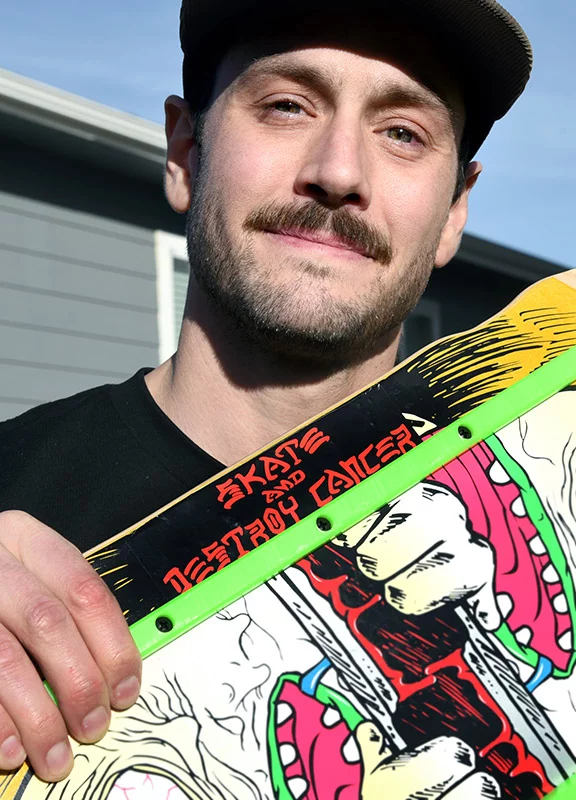
As with so many cancer patients, chemotherapy was tough on Kiesel. He felt sick for five or six days during and after the infusions, had a handful of days feeling more like his old self, and then the cycle repeated. Support from family and friends helped keep him going — especially early on, when the effects of chemotherapy layered over those of yet-unchecked cancer. His parents flew in from Florida and helped out for three months. Friends banded together to buy the avid skateboarder a mini half-pipe, packed the back of a sprinter van with the unassembled lumber, plywood and hardware and drove from California to the Kiesel home in Lakewood.
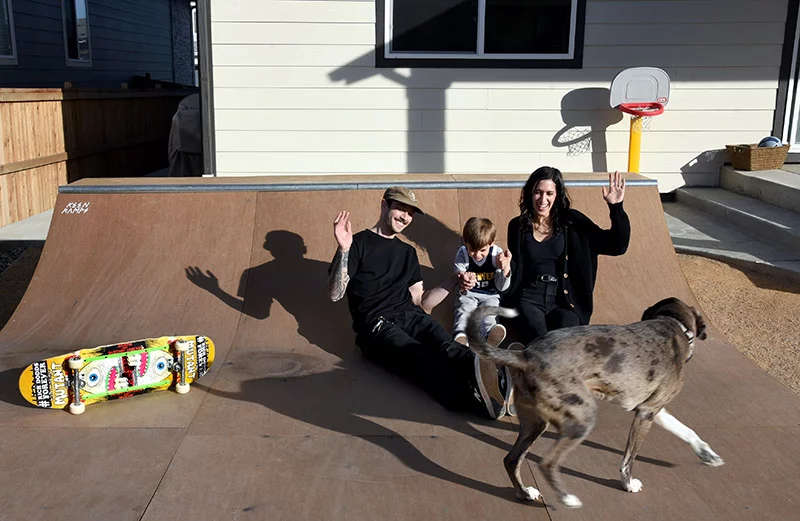
FDA approval of zenocutuzumab offers new hope
By July 2025, Kiesel’s pancreatic cancer was back on the offensive. Having now progressed on first-line chemotherapy, he would be eligible for the zenocutuzumab trial. But he no longer needed a trial to access the monoclonal antibody: The U.S. Food and Drug Administration had granted accelerated approval for zenocutuzumab in December 2024 for NRG1-fusion patients with metastatic pancreatic cancer or metastatic non-small cell lung cancer. The clinical trial that led to approval found that the drug worked for 15 of the 36 patients with pancreatic cancer. Lieu prescribed it, and Kiesel became the first UCHealth patient to take zenocutuzumab.
By early November, Kiesel was on his fifth infusion cycle of the drug. He’s a stay-at-home dad now, delivering Will to and from school, doing the shopping and a lot of the cooking, and maintaining the household, now in Erie, while Natasha serves as breadwinner. He’s back up to — or slightly above — his weight before diagnosis, his gym habit having added muscle.
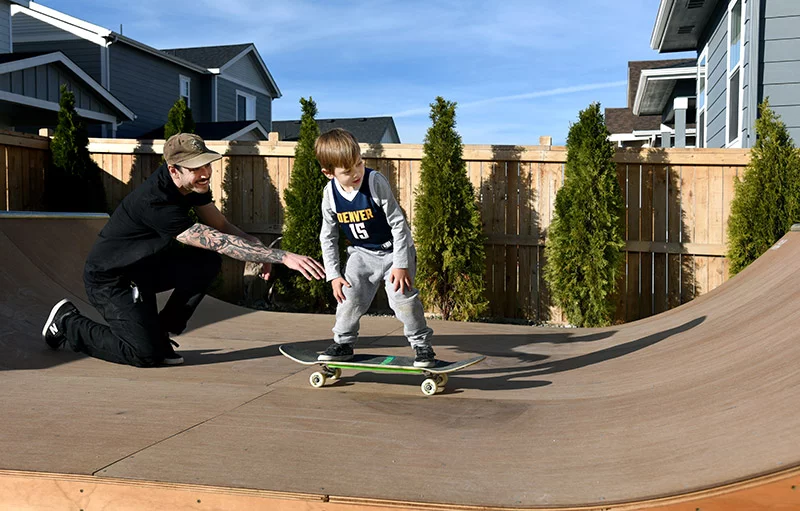
“With this treatment, I’m going to cook my family dinner, going to eat dinner with them, going to take my son to school in the morning, going to go work out tomorrow,” Kiesel said. “And I actually look forward to doing that stuff. On chemo, I would still try to do all that, but I’d be white-knuckling it through everything.”
Lieu’s take is that his patient looks great, and that assessment applies to more than just Kiesel’s appearance. His scans show a stark retreat of tumors, and the CA 19-9 tumor markers from his blood tests have gone from 1,500 units per milliliter when Lieu first met him to 34 – within the range of a healthy person’s.
“I think the headline here would be, ‘Right patient, right drug, right time,’” Lieu said.
New pancreatic cancer treatment options coming
How long zenocutuzumab will keep working for Kiesel, no one knows. Lieu says some patients will develop resistance; others could enjoy “long, durable responses.” But he sees zenocutuzumab as a promising early step toward what he is optimistic will be a wave of biomarker-directed therapies — that is, therapies aimed at specific genetic traits of a patient’s tumors — for what has been a treatment-resistant, fast-growing, lethal cancer. One class of experimental therapies could have an especially big impact, he says: those that target the KRAS mutations found in about 90% of pancreatic cancers (Kiesel’s is among those that don’t have it).
Kiesel is doing his best to manage the fear and anxiety that come with each biweekly blood draw, each quarterly scan. He’s sought out others, in person and online, who have found themselves in his shoes. Though few are as young as he is, it has helped him cope, he says.
“No one’s told me there’s a chance of a cure,” he said. “So, I try to stay as present as I can and make the most of each day.”
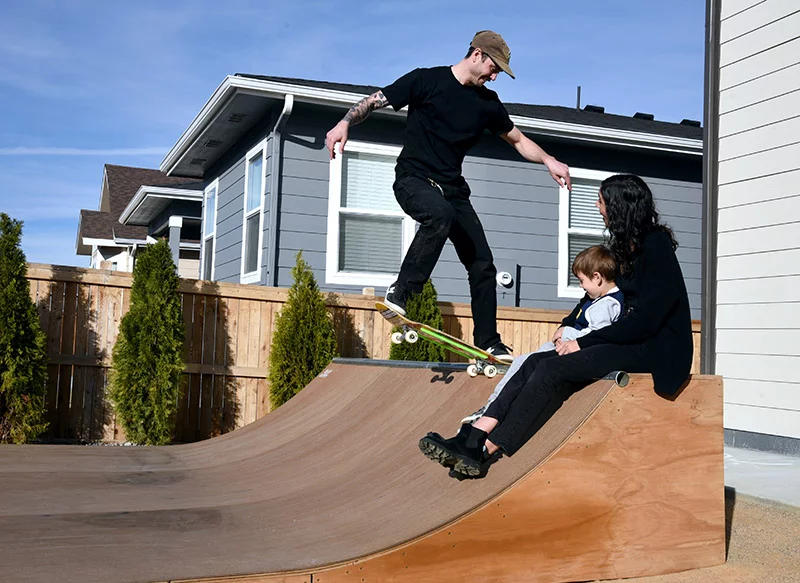
That means spending time with Natasha and, especially, Will. Father and son skateboard on the mini-halfpipe and at the local skate park; they ride bikes at the pump track. This winter, the two will head up past Nederland for Will to start snowboarding lessons at Eldora, so that, one day soon, he can follow his not-so-old man’s tracks down the mountain.
Kiesel is especially looking forward to that. In the meantime, he is savoring the principal gift this timely monoclonal antibody has given him — and that’s time with his son.
“I’m grateful that I can be here to take care of him,” Kiesel said.
